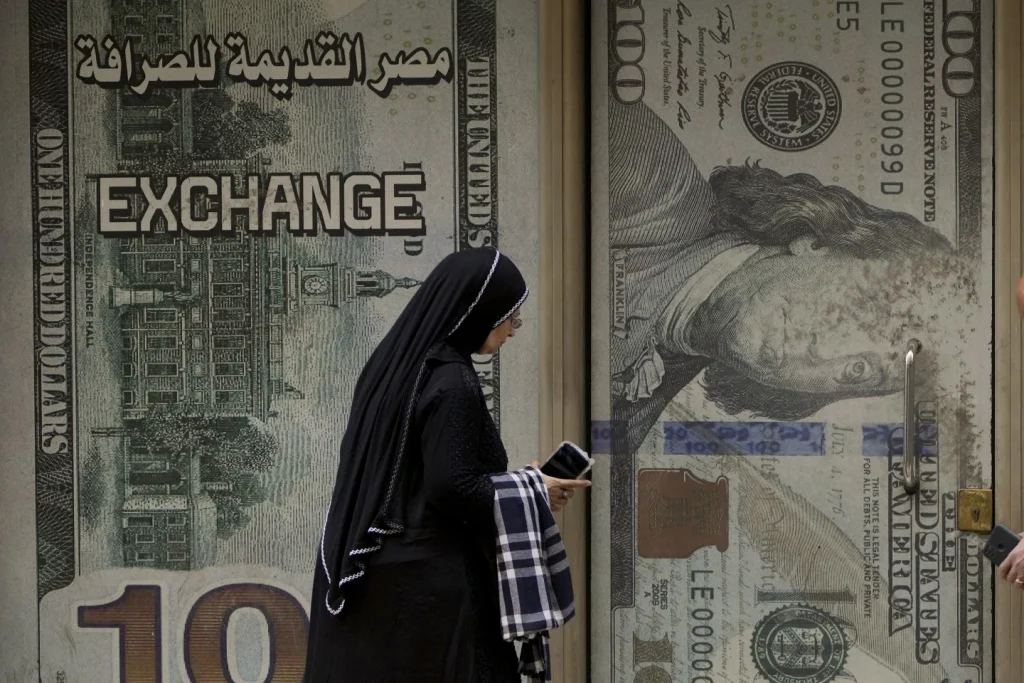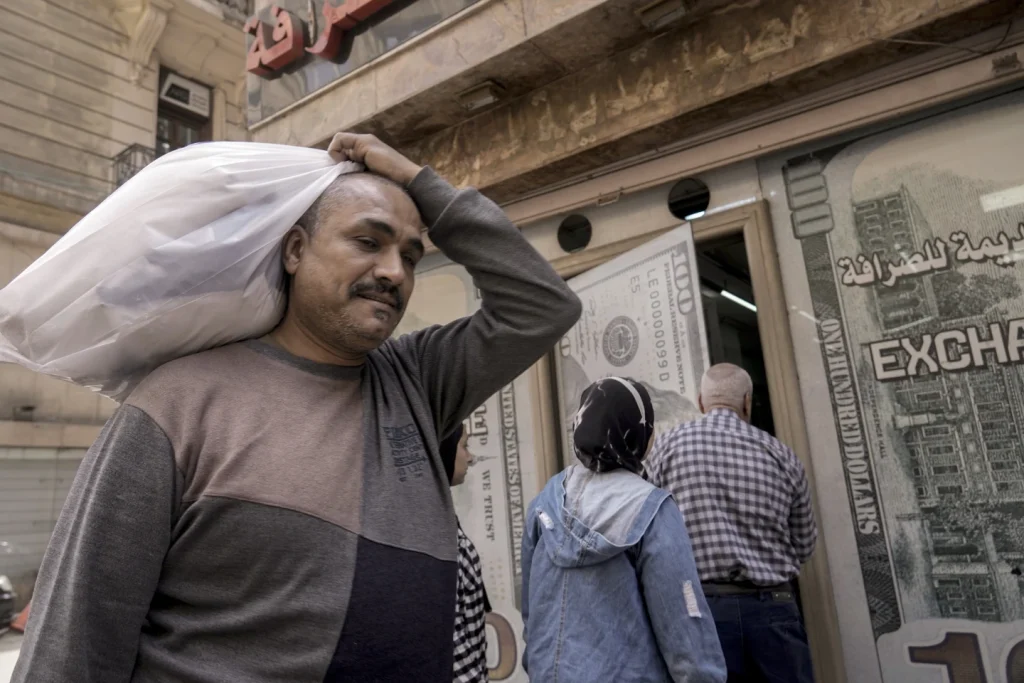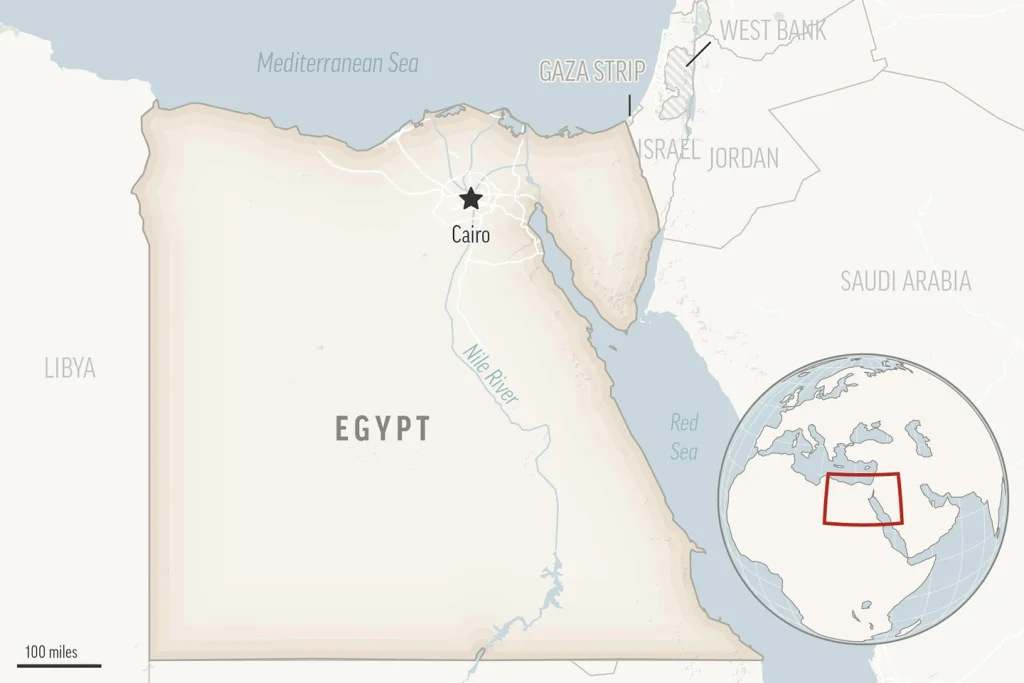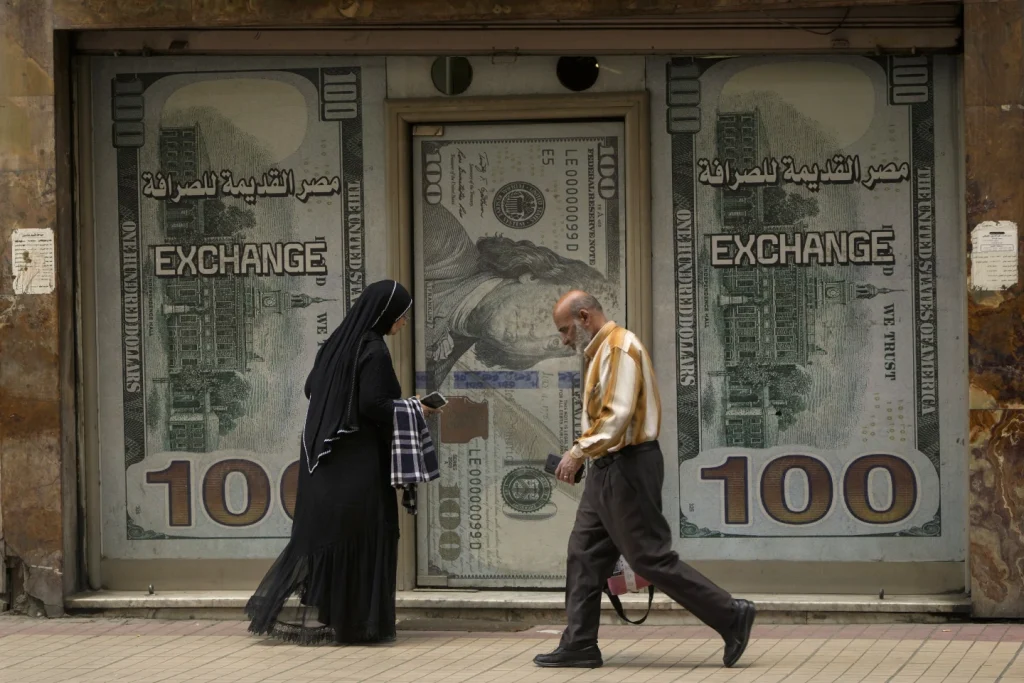In a significant development, Egypt took decisive economic measures on Wednesday by floating its currency and securing a substantial increase in its bailout loan from the International Monetary Fund (IMF).
The country, grappling with a severe shortage of foreign currency and soaring inflation, raised the IMF loan amount from $3 billion to $8 billion.
The decision to float the Egyptian pound, coupled with a significant hike in the main interest rate, aims to address inflationary pressures and attract much-needed foreign investments.
These pivotal steps, unveiled by the Central Bank of Egypt in the early hours of Wednesday, were pivotal prerequisites set forth by the IMF for the expansion of the bailout loan initially agreed upon in 2022.
Notably, the Central Bank of Egypt, or CBE, implemented a substantial 600 basis points increase in the key interest rate, setting it at 27.75%.
The immediate aftermath of these announcements saw the Egyptian pound being floated, resulting in a rapid depreciation of over 60% against the U.S. dollar within hours.
Consequently, commercial banks swiftly adjusted their exchange rates, with the U.S. currency being traded at more than 50 pounds for $1 by the close of the trading day, a stark contrast to the previous rate of about 31 pounds.
This bold move underscores Egypt’s commitment to stabilizing its economy and fostering a more conducive environment for economic growth and stability in the face of challenging economic conditions.
The value of a floating currency is a crucial aspect of global economics, as it is determined by the forces of supply and demand in the foreign exchange market rather than being fixed by government policies.
This flexibility allows the currency to adjust according to market conditions, reflecting the true economic strength of a country.

Investors play a key role in determining the value of a floating currency, as they assess the economic policies and performance of a nation before deciding to buy its currency.
Countries with sound economic policies are more likely to attract investors, leading to an increase in demand for their currency and a subsequent appreciation in its value.
This system of market-driven valuation imposes discipline on governments, incentivizing them to adopt prudent economic policies to maintain the stability and attractiveness of their currency.
Overall, the value of a floating currency is a reflection of market confidence in a country’s economic fundamentals, making it a crucial indicator of its economic health and stability.
On the other hand, the market tends to avoid currencies from poorly managed economies, resulting in their devaluation.
Countries that accumulate large deficits or engage in excessive money printing that leads to inflation are often penalized by the market. In cases where a government artificially sets the value of its currency higher than its actual worth, black markets may emerge, as seen in Egypt.
The Egyptian economy has faced significant challenges in recent years, including government austerity measures, the impact of the coronavirus pandemic, repercussions from Russia’s invasion of Ukraine, and the Israel-Hamas conflict in Gaza.
Furthermore, attacks by the Houthi rebels on shipping routes in the Red Sea have significantly reduced revenues from the Suez Canal, a crucial source of foreign currency for Egypt.
These attacks have diverted traffic away from the canal, forcing ships to take longer routes around the southern tip of Africa.
The ongoing war in Ukraine has sent shockwaves through the global economy, impacting even cash-strapped nations like Egypt, which finds itself in a precarious financial position.
As the most populous Arab country with over 104 million people, Egypt heavily relies on imported wheat and other food staples to sustain its population.
In response to the economic challenges posed by the conflict, the Central Bank of Egypt (CBE) announced a series of measures aimed at curbing the black market for currencies and addressing soaring inflation rates that have surged to unprecedented levels in recent months, with an annual inflation rate exceeding 31% in January as per official data.
The CBE emphasized its commitment to using inflation targeting as a key policy tool, allowing market forces to determine exchange rates.

Furthermore, authorities reassured the public that the CBE has secured adequate foreign currency reserves to meet market demands, particularly following the recent unification of the exchange rate.
Central bank Governor Hassan Abdalla underscored the institution’s focus on taming double-digit inflation rates, signaling a concerted effort to stabilize the economy amidst challenging external circumstances.
In response to the pressing issue of inflation, a stern declaration was made by an authoritative figure asserting the unwavering commitment to combat this economic menace through any necessary means.
According to analysts, the influx of funds can be traced back to a significant multibillion dollar agreement struck just last week with an Emirati consortium aimed at the collaborative development of the Mediterranean city of Ras el-Hekma, situated approximately 350 kilometers (around 220 miles) northwest of Cairo.
This monumental deal is set to inject a substantial $35 billion into Egypt’s economy, signifying a potential boon amidst challenging economic circumstances.
The escalating prices of essential commodities have exacerbated the struggles endured by middle-class and impoverished Egyptians, who have borne the brunt of price surges following the government’s ambitious economic reform initiative launched in 2016 to revamp the ailing economy.
Official statistics indicate that nearly 30% of Egypt’s population grapples with poverty, underscoring the urgency of addressing economic hardships.
Notably, the recent devaluation of currency and the hike in interest rates are poised to exacerbate the challenges faced by Egyptian citizens already grappling with exorbitant price levels, as highlighted by Hamish Kinnear, a seasoned analyst at risk intelligence firm Verisk Maplecroft.
The proactive measures taken by the central bank have set the stage for an accord with the International Monetary Fund (IMF) to augment a bailout loan to a substantial $8 billion, a marked increase from the initial $3 billion following protracted negotiations.
The announcement of this pivotal agreement, made late in the afternoon on Wednesday, awaits the crucial approval of the IMF executive board, slated to convene later this month to deliberate on this significant development.
The commitment shown by the authorities towards implementing various critical aspects of their economic reform program is commendable.
As stated by Ivanna Vladkova Hollar, the IMF mission chief for Egypt, the main reforms being undertaken, such as the adoption of a free-floating exchange rate and a reduction in infrastructure spending to combat inflation, are crucial steps towards achieving economic stability and growth.

The endorsement of these reforms by key figures like the Egyptian Prime Minister Moustafa Madbouly further solidifies the government’s dedication to improving the country’s financial situation.
This new deal not only paves the way for receiving loans from other financial institutions, including the World Bank, but also signals a willingness to collaborate with international partners to ensure the success of these reform efforts.
Overall, the proactive approach taken by the authorities in addressing economic challenges bodes well for Egypt’s future prospects and demonstrates a commitment to sustainable development.
